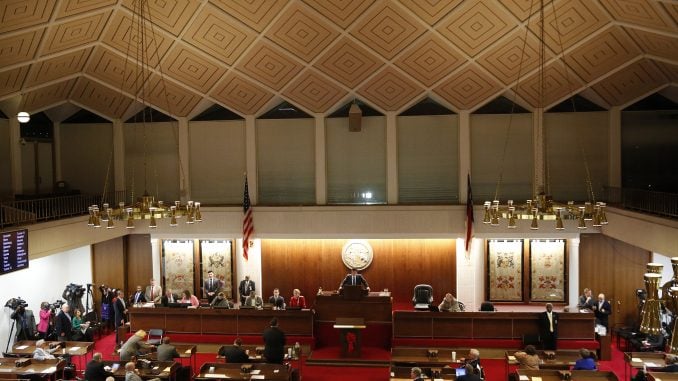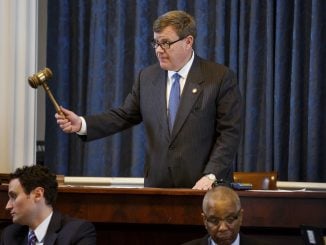
RALEIGH — The North Carolina House’s nearly $30 billion budget proposal was passed on April 5 and has been sent to the Senate.
The second edition of the House’s 2023 Appropriations Act passed that chamber by a vote of 78-37 with significant Democratic support.
Democrats voting in favor of passage were Reps. Kelly Alexander, (D-Mecklenburg), Cecil Brockman (D-Guilford), Carla Cunningham (D-Mecklenburg), Allison Dahle (D-Wake), Joe John (D-Wake), Nasif Majeed (D-Mecklenburg), Garland Pierce (D-Scotland), Shelly Willingham (D-Edgecombe) and Michael Wray (Northampton).
Rep. Tricia Cotham (R-Mecklenburg), who had announced she was changing her party affiliation to Republican earlier that day, also voted in favor.
The House budget proposal saw 27 amendments proposed during floor debate, with 15 passing. Some of the amendments made technical or language corrections, while others removed or added entire sections.
The section regarding structural changes for the Schools for the Deaf and Blind was removed due to a bill with the same aim passing into law without Gov. Roy Cooper’s signature.
Amendment 22, which included several education-related provisions, added a new section requiring the N.C. Department of Public Instruction to establish a “Teacher Apprentice Grant Program” for the 2023-25 fiscal biennium. The program would give districts funds for an eligible apprentice teacher’s tuition cost at an educator preparation program as well as salary supplements for teacher apprentices who become teachers in the unit.
Amendment 13 establishes a 12-member Joint Legislative Study Committee on the State Crime Lab to study and propose possible administrative and organizational locations for the State Crime Lab within the state government. Six members would be appointed by the speaker of the House of Representatives, with five of those appointees to be members of the General Assembly, two of which have to be members of the minority party. One of the Speaker’s appointees has to be a member of the public that either currently serves or at one time served in a scientific or managerial role at the State Crime Lab. The president pro tempore of the Senate will appoint six others with the same rules.
The House’s proposal contains several policy items, including expansion of the state’s school choice options.
Cooper issued multiple tweets attacking the budget.
In particular, the governor’s Twitter thread denounced the expansion of school choice while claiming the budget “injects culture wars into the classroom.”
Cooper also claimed the budget was “setting curricula” that would result in the removal of science, civics and history before going on to attack tax cuts for North Carolinians included in the proposal. Notably, those claims do not appear in the budget report or bill summary.
“The House budget fails public schools while injecting culture wars into classrooms, increasing vouchers for unaccountable private schools, giving even more tax breaks to wealthy people and letting childcare centers fail when they’re needed to help parents get back to work,” one tweet read. “A budget that pushes extreme policy changes and more tax breaks for the wealthy over the basic needs of students and parents is wrong for our state and legislators should get back to the drawing board.”



